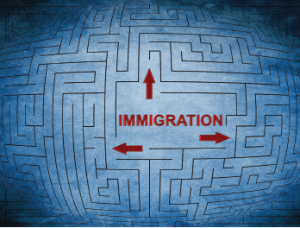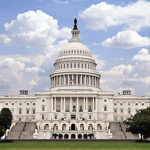
alexskopje / shutterstock.com
I am an alien rheumatologist. Are you? One in five rheumatology fellows is considered an alien. Under the Code of Federal Regulations Title 22 Chapter I Subchapter G Part 62 Subpart B Section 62.27, an alien physician is a foreign national who is a graduate of a school of medicine who comes to the U.S. under a program in which they will receive graduate medical education or training conducted by accredited U.S. schools of medicine or scientific institutions. Alien physicians, such as myself, are sponsored by the Educational Commission for Foreign Medical Graduates (ECFMG) via the J-1 exchange visitor visa program.
A multitude of reasons explain why a foreign medical graduate may wish to pursue graduate medical training in the U.S., including the quality of education, quality of life, family, relationships, adventure and money. My personal reason was falling in love. Yes, dear reader, I had fallen in love with a man while visiting Boston as a visiting medical student at Dana-Farber Cancer Institute. After two years of a long-distance relationship between the U.K. and Boston, I quit my job as a junior doctor in Oxford to make the leap across the pond to become an alien physician. Alas, two years after I moved to Boston, our relationship ended. Nevertheless, there are worse places than Boston to be an eligible bachelor with a British accent. I have no regrets about moving to the U.S.
However, as I near the end of my graduate medical training my status as an alien rheumatologist is catching up with me. Under Section 212(e) of the Immigration and Nationality Act, any exchange visitor physician coming to the U.S. on or after Jan. 10, 1977, for the purpose of receiving graduate medical education or training, is automatically subject to the two-year, home-country physical presence requirement. The implication is that as a British citizen, I have to return to the U.K. after my rheumatology fellowship because my visa will expire. So strict is this requirement that on my DS-2019 form, it is written in bold capital letters that even marriage to a U.S. citizen or birth of a child in the U.S. does not remove this requirement. Is this the end of my American dream?
Options
Ways do exist to obtain a waiver of the exchange visitor, two-year, home-country physical presence requirement. One route is to obtain a waiver via the Conrad State 30 Program under Section 220(c) of the Immigration and Nationality Technical Corrections Act of 1994 (INTCA) Public Law 103-416. The Conrad State 30 Program allows federal programs to waive the two-year, home-country physical presence requirement for foreign physicians who received J-1 status to pursue graduate medical training in return for at least three years of medical service to patients in or from underserved areas. Unsurprisingly, these underserved areas are not the most desirable places for physicians to live and work. Rheumatology J-1 visa waiver opportunities are usually found in rural areas, but occasionally can be found in underserved urban areas.
